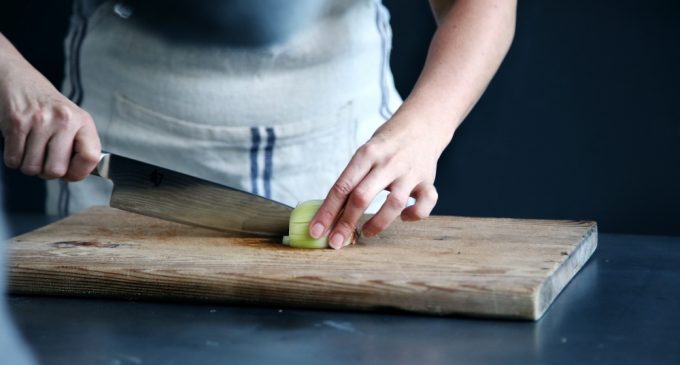
Let's face it there are many mistakes people make but these are the ones that stand out.
Not reading the entire recipe before you start cooking.
I get it. You're excited to get cooking, so you dive right in, reading and following the recipe as you go. The problem is that some recipes aren't written in the correct order, and there's nothing worse than getting halfway through a recipe and realizing you're missing a few ingredients.
Follow this tip: Before you do anything, your first order of business should always be reading the recipe all the way through. It will give you a better idea of exactly what you'll be doing, and you'll have a chance to make sure you have all the ingredients and equipment you need.
Using the wrong size cutting board.
Sure, those tiny cutting boards are cute, but aside from slicing a few berries or prepping a garnish for a drink, they're not that useful. And, while a whole roast chicken, for example, might just fit on there, it's far too cramped to work neatly, efficiently, and safely.
Follow this tip: Give yourself plenty of room to work, and make sure your cutting board is big enough for the job at hand. You'll be a lot more comfortable slicing and chopping, plus it's safer than cramming everything onto a too-tiny board.
Using the wrong knife.
Before you take your knife out, think about what you'll be using it for. Are you mincing something small, like garlic? Or, will you be working with something larger, like a whole chicken? You might love working with your paring knife, but it's not an all-purpose tool and doesn't work well when tackling large foods.
Follow this tip: Always use the right size knife for the job. Think of your chef's knife as an all-purpose knife. In home kitchens, this is the tool to turn to when you're cutting meat, slicing fruit and vegetables, and mincing herbs. Reach for a serrated bread knife when it's time to slice through a baguette or other hearty loaves. And opt for a paring knife when you're working with a particularly small piece of food.
Allowing yourself to work with a messy workspace.
Not only will you end up working less organized and less efficient when you have a messy workspace, but this puts you at higher risk for cross-contamination with your food.
Follow this tip: The value of keeping a clean work area was drilled into me from day one of culinary school. And, for good reason. It allows you to work a lot more organized, and you'll save time in the long run. Keeping a garbage bowl next to your cutting board and cleaning as you go are also huge helps.
Adding ingredients to a cold pan.
In most cases, it's better to heat up your pan and then add oil and food. (There are some exceptions, like starting bacon in a cold pan.) I see people add oil and food to a pan, and then turn on the stove it makes me cringe. Food should never touch a cold pan. Instead of getting a nice sear, the ingredients soak up the oil or butter and are likely to stick to the pan.
Follow this tip: Make sure the pan and oil are hot before adding any ingredients to the pan. A hot pan is key to preventing your food from sticking, and for getting a good sear.
Source: The Kitchn


There are no comments at the moment, do you want to add one?
Write a comment